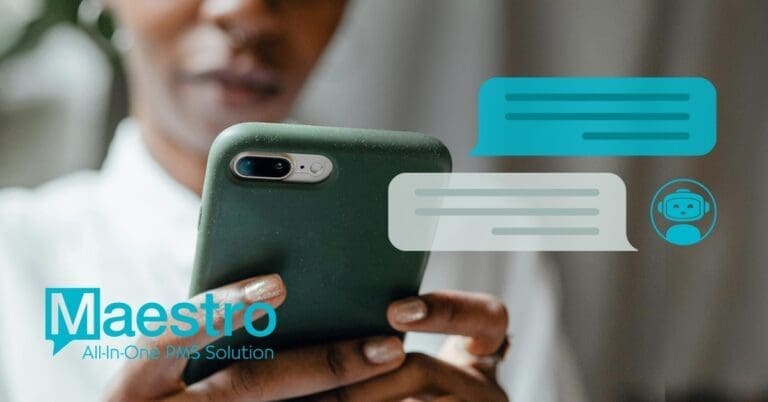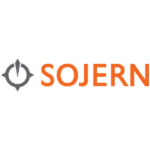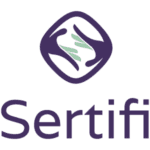 Artificial Intelligence (AI) seems to be a buzzword in today’s information age. AI is all around us. It’s in our phones, it’s in our cars, and it’s promised to be the way of the future. AI has captured the interests and imaginations of executives across multiple industries.
Artificial Intelligence (AI) seems to be a buzzword in today’s information age. AI is all around us. It’s in our phones, it’s in our cars, and it’s promised to be the way of the future. AI has captured the interests and imaginations of executives across multiple industries.
I recently sat down with Adam and Larry Mogelonsky to discuss the importance of conversational AI and their recent article, Why Conversational AI Exemplifies the New Era of Hotel Operations. What I found was that not all artificial intelligence is created equal, and the pursuit of artificial achievement may be common, but realizing its full potential is still rare. Continue reading below to learn why.
The Reality of Artificial Intelligence
Each year, thousands of companies across multiple industries spend tens of billions of dollars pursuing artificial intelligence capabilities. In a TED Talk, Shervin Khodabandeh of Boston Consulting Group says, most of their research fails to bear fruit. “… only about 10% of these companies get any meaningful financial impact from their investments. These 10% winners with AI have a secret. And their secret is not about fancy algorithms or sophisticated technology. It’s something far more basic. It’s how they get their people and AI to work together. Together, not against each other, not instead of each other. Together in a mutually beneficial relationship.” This mutually beneficial relationship that Khodabandeh mentions is at the core of the hospitality industry’s future.
The State of Travel in 2022
After hitting the collective pause button on travel for 2020 and 2021, travel is back, and it’s booming. The recent travel boom was predicted by industry experts, as was its accompanying labor shortages. But no one could have predicted the severe impact those shortages would have on the industry at large.
The consequences of the recent labor shortages include minor service errors, increased wait and hold times for guests, poor online reviews, lost reservations, and limited hours of operation. Given high labor costs and the recent labor shortages, hotels are turning to zero-labor solutions, but not all are created equal.
According to Adam and Larry Mogelonsky, we are now in what the two refer to as the “Post-Covid Hyper-Capitalism” (PCHC) era. The PCHC, as defined by Adam and Larry Mogelonsky, is defined by our current breakneck pace of commerce as the new normal. The pair states that hotels will feel the change of pace significantly, as attention spans are exceedingly imitated, which affects guests’ behavior in the following ways:
- Guests are overwhelmed by hotel options, booking channels, and advertisements. So, brands need to be omnipresent across all channels.
- Overwhelmed guests are searching for answers. Hotels must be prepared to answer guests’ questions via live chat or over the phone.
- In-house guests will need continued reassurance from the front desk via phone availability and two-way messaging.
Given the recent labor shortages and the fast pace that guests expect answers, hotels now need artificial intelligence more than ever, but not just any AI. They need AI designed specifically for the hospitality industry.
Conversational Artificial Intelligence is Key
The hospitality industry is a people-powered business. Customer service is of the utmost importance in the hotel world, and many believe that AI is the antithesis of a customer-first service approach.
Conversational AI, like Annette, The Virtual Hotel Agent™ (Annette), will enhance a hotel’s ability to provide top-notch customer service, not hinder it. Conversational AI uses natural language processing to learn conversational tones from social media, movies, and TV shows.
Annette can be programmed using your hotel’s own voice talent. When returning guests call, they hear a familiar voice. Conversational AI software doesn’t rely on call-and-response menus, instead conversational AI is programmed to answer hundreds of commonly searched and asked FAQs. Additionally, conversational AI can understand foreign languages, different accents, and even muffled and hushed voice tones.
Modern conversational AI is proficient across multiple channels to communicate with all guests, no matter their generation. Gen Z and Millennial guests may prefer texting. Annette can send follow-up and confirmation texts to guests after conversations. Boomers, who still hold most of the nation’s wealth, prefer phone calls. When Annette answers, guests are reassured that they are being taken care of
AI to Work with Your Employees, Not Replace Them
AI is not here to replace the people that make brands great. It’s here to enhance their ability to serve guests. 2022’s Great Resignation has left workers struggling to keep up as they assume the responsibilities of multiple departments. Annette will free up your front desk staff to allow them to better serve guests.
Hotels can save time and money by using Annette. Instead of spending those resources retraining existing employees to perform extra duties. Annette, The Virtual Hotel Agent™ works with and for your employees – it doesn’t replace them. Annette works to lubricate the gears of your hotel’s engine so it can run as efficiently as possible. Hospitality industry-specific AI may be a new technology, but it’s proving to be the key for hotels to keep up in such fast-paced times.
Meet Annette, The Virtual Hotel Agent™ by Travel Outlook, and learn how much she can save your hotel.
































